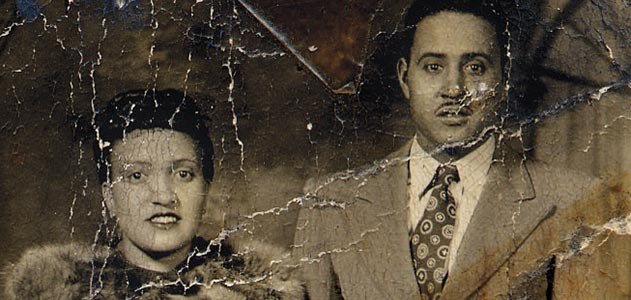
Henrietta and David Lacks (Source: Smithsonian Magazine)
I watched the Oprah Winfrey produced HBO film on Henrietta Lacks, in which Winfrey stars, with great anticipation. The movie is based on the book The Immortal Life of Henrietta Lacks by Rebecca Skloot. It is a story that is still unbelievable, if it were not true.
If you don’t know her story by now, Henrietta Lacks is the Black woman from Baltimore whose cells – the HeLa cell – were pirated by Johns Hopkins Hospital in the city and used, without the knowledge of Lacks of her family, for medical research. Lacks succumbed to cervical cancer in 1951. The HeLa cell, cut from Lacks’ cervix, were the first human cells to reproduce outside the body and transformed the science of medicine. The HeLa cell has led to the polio vaccine, in vitro fertilization, gene mapping and advances in cancer treatments, AIDS research and a host of other medical advances. The cells of Henrietta Lacks have been reproduced and used in medical research, and commoditized for profit all over the globe. And that’s where Oprah Winfrey’s screen account of this wretched tale goes awry.
Winfrey’s production misses the mark because it failed to bring to light the essence of the Henrietta Lacks story – its place in the narrative of the abuse of Black bodies in America. What happened to Mrs. Lacks was the continuum of the torture of Black bodies during the trans-Atlantic slave trade, the butcher of Black bodies during Jim Crow, the experimentation on Black bodies by the corporate medical establishment and present day physical abuses of Blacks in the criminal justice system and law enforcement, and lack of concern for Blacks who go missing. What Winfrey gave us was a story of Black family dysfunction, angelic white concern and a Hollywood weep fest that fails to hold a powerful institution accountable for a wretched crime and moral and ethical failure.
She knows better.
Winfrey and I have a Baltimore connection. We both know Baltimore well, and its racial history and Maryland’s history of Jim Crow despite it being historically categorized as a “border state.” It’s the south. I was a college student at Morgan State University in the late 1970s and Winfrey was a budding television reporter for WJZ-TV in Baltimore. Upon making new friends in college who were Baltimore natives I learned of the deep suspicions Blacks in the city held of Johns Hopkins Hospital. My friends from East Baltimore recounted stories passed to them by their elders of how Hopkins would prey on Black derelicts and the elderly, and use them for medical experiments. At first I discounted these stories as urban tales but they were too numerous and hearing them from so many people suggested they simply could not be dismissed. I am sure Winfrey heard the same stories while she worked in Baltimore. She had to, because they are an important chapter in the sordid history of racism in that city.
This history gets passing reference in the HBO film, during a scene in the home of Lack’s brother. While the internal dynamics of the Lacks family is important in telling the story, as is the individual experiences of the Lacks children; what is key in telling the truth is the abuse of their mother by a powerful, white-led institution of world renown that profited off a Black body and exploited this Black family.
Johns Hopkins is given a ‘get-out-of-responsibility’ card in this dramatization of this Black tragedy. It is the second time this institution has been the focus of a film on its manipulation of Black people. The first was the movie Something the Lord Made that told the story of cardiac pioneer Vivien Thomas. His brilliance led to a surgical solution for a congenital heart defect known as “Blue Baby Syndrome.” His work had been credited to a white surgeon at Johns Hopkins. This episode occurred just years before Hopkins took advantage of Henrietta Lacks and used what God had bequeathed her for their own devices. At a time when whites were openly and violently denying Black humanity, the cells of this Black woman were being used in research that would help save white lives. And while Blacks benefited from the research, the history of health care disparities shows that we benefited little as proper care has often been purposely denied Blacks with chronic medical conditions.
How do we let this happen in 2017 when there is so much evidence of institutional abuse of Black bodies? All one has to do is read the searing and sobering book Medical Apartheid by Harriet Washington and it’s clear, unmistakably so, of the intentional thievery of Black humanity by the medical establishment. Yet, somehow, that does not find its way in the television depiction of one of the most egregious crimes committed against a Black person and abuse of a Black body. The truth is a footnote in Winfrey’s movie.
When folks outright oppose, ridicule or reject the calls for reparations; this is why I push back. If for no other reason than a full accounting of the abuses committed against Black people, we need to demand reparations. The story of Henrietta Lacks is but one. Years ago, the Associated Press produced a landmark series on how Black-owned land was stolen by corporations. There are thousands of such tales but we will never get to the truth if we keep producing dramatizations that focus on Black hurt and not the cause of our pain and suffering.
Walter Fields is the Executive Editor of NorthStarNews.com.












